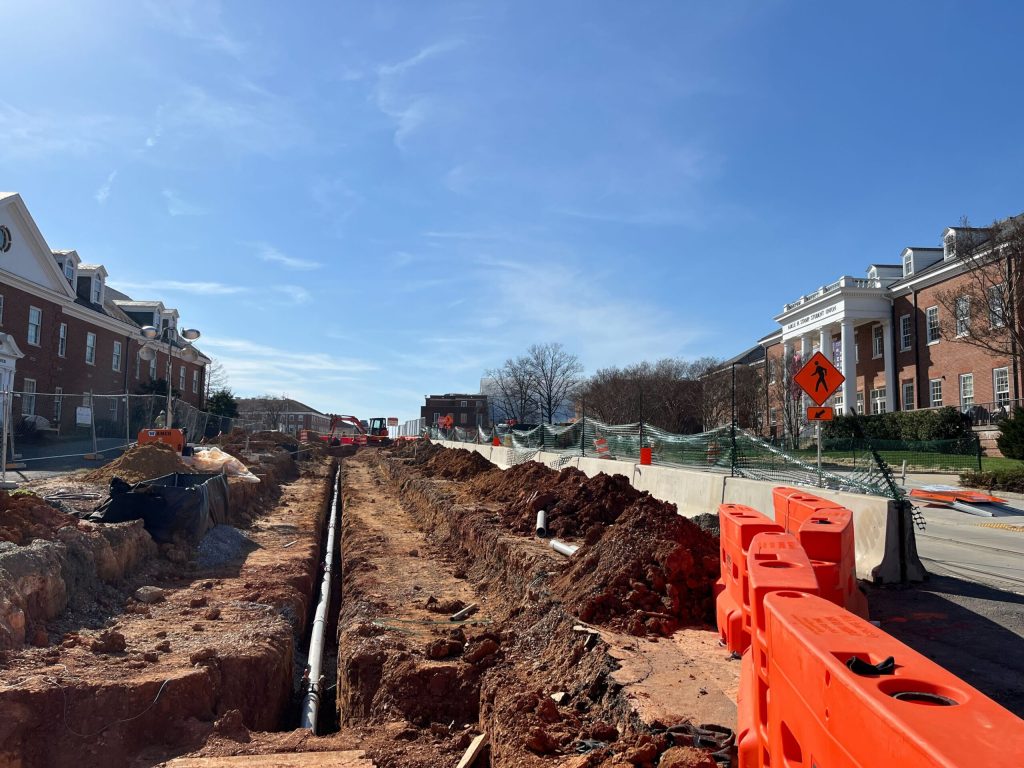
Gov. Wes Moore and the state’s chief financial officers approved nearly half a billion dollars in extra funds for the Purple Line on Wednesday, even as they condemned the embattled project’s mounting delays and escalating costs.
Nearly seven years after construction began, transit authorities returned to the Board of Public Works yet again this month, this time seeking an additional $425 million for the light-rail project. It was the fourth such request since 2016 to supplement the Purple Line’s original $5.6 billion budget.
Following the three-member board’s unanimous but reluctant approval, the total cost of the Purple Rail is now approaching $10 billion.
“Not anyone in our administration is happy that we find ourselves, once again, in a position to have to increase the cost of this project,” Moore said.
“Competence is a basic ask of the people of this state,” he added, “and we are still cleaning up this mess from years of mismanagement on this project.”
The 16-mile east-west line, designed to run between New Carrollton and Bethesda, is being built through a public-private agreement with the Purple Line Transit Partners. The group is responsible for constructing, operating and maintaining the system until 2057.
The administration of Moore’s predecessor, former Republican governor Larry Hogan, brought in private companies to work with the state on the project. The public-private partnership, known as a P3, was part of an effort to mitigate the cost burden on taxpayers. But the project has endured a number of issues, including significant construction delays and disputes with contractors.

Construction of the Purple Line runs along Campus Drive on the campus of the University of Maryland on March 12, 2024. (Caroline Koutsos/Capital News Service)
A spokesperson for Hogan offered a different critique after Wednesday’s meeting.
“The Purple Line doesn’t need to be ‘fixed,’ it needs to be finished – and for the good of the region, that should be the sole focus of everyone involved in the project,” said Mike Ricci, a spokesperson for Hogan, currently a candidate in the Republican primary for U.S. Senate.
“We recognize Maryland Democrats are in full panic mode about Governor Hogan’s campaign, but turning a procurement meeting into a political war room reeks of desperation,” Ricci said in an email to Capital News Service.
During Wednesday’s discussion about whether to increase funding, board member Brooke Lierman, the state’s comptroller, took aim at public-private partnerships, saying that the Purple Line demonstrates “the folly of relying on P3 models for complex, long-term transportation projects.”
“Everyone in the state of Maryland is bearing the burden of the errors made by the past administration today,” Lierman said. “I don’t enjoy voting yes on this, but we have to be committed to ensuring that we meet our obligations to the riders in the state of Maryland.”
At Wednesday’s meeting, Holly Arnold, administrator of the Maryland Transit Administration, said the Purple Line is more than 65% complete, with construction underway at 13 of 21 planned stations and 17,000 linear feet of rail installed. The expected completion of the much-delayed project has been pushed back to winter 2027.
Arnold added that the $425 million would be paid out to Purple Line Transit Partners over several years and is contingent upon achieving certain milestones, an accountability measure aimed at encouraging progress with the project.
Still, board member Dereck Davis, the state’s treasurer, lamented the project’s problems. “I just want to raise hell,” he said. He added that he’d been considering casting a “no” vote on additional funds but ultimately decided the project is too far along to abandon.
“We’re literally approaching 100% [cost increase,]” Davis said, “with no real guarantee that that’s the end.”










